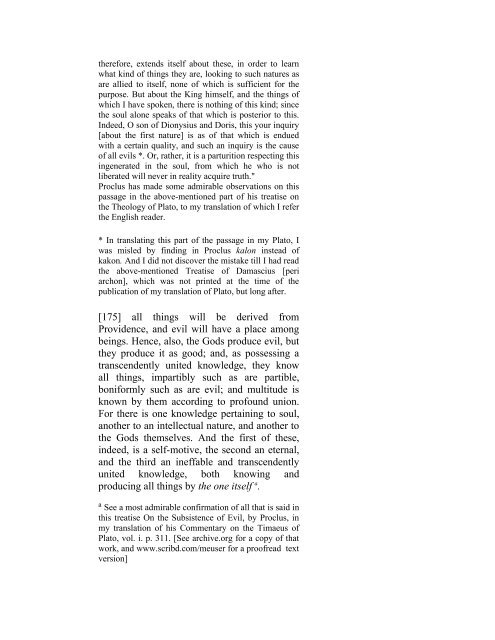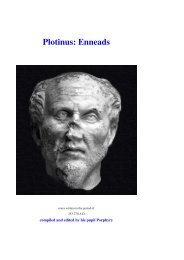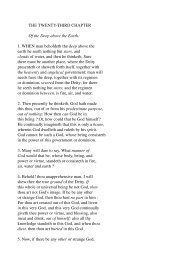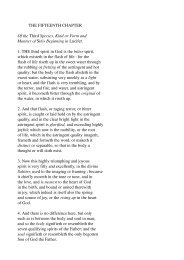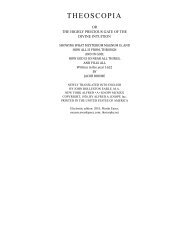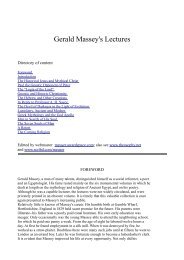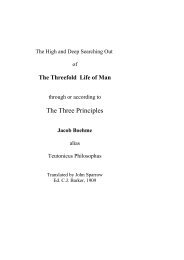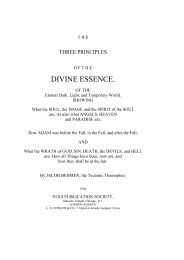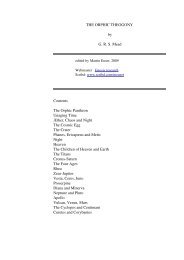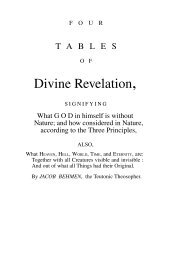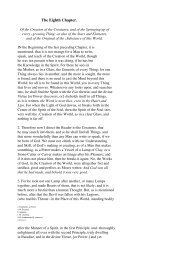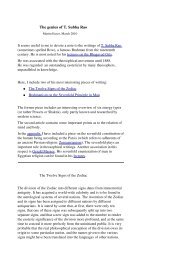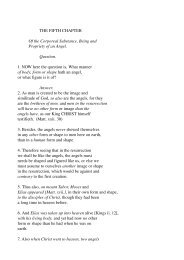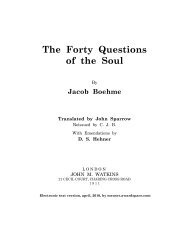PROCLUS, THE PLATONIC SUCCESSOR
PROCLUS, THE PLATONIC SUCCESSOR
PROCLUS, THE PLATONIC SUCCESSOR
You also want an ePaper? Increase the reach of your titles
YUMPU automatically turns print PDFs into web optimized ePapers that Google loves.
therefore, extends itself about these, in order to learn<br />
what kind of things they are, looking to such natures as<br />
are allied to itself, none of which is sufficient for the<br />
purpose. But about the King himself, and the things of<br />
which I have spoken, there is nothing of this kind; since<br />
the soul alone speaks of that which is posterior to this.<br />
Indeed, O son of Dionysius and Doris, this your inquiry<br />
[about the first nature] is as of that which is endued<br />
with a certain quality, and such an inquiry is the cause<br />
of all evils *. Or, rather, it is a parturition respecting this<br />
ingenerated in the soul, from which he who is not<br />
liberated will never in reality acquire truth."<br />
Proclus has made some admirable observations on this<br />
passage in the above-mentioned part of his treatise on<br />
the Theology of Plato, to my translation of which I refer<br />
the English reader.<br />
* In translating this part of the passage in my Plato, I<br />
was misled by finding in Proclus kalon instead of<br />
kakon. And I did not discover the mistake till I had read<br />
the above-mentioned Treatise of Damascius [peri<br />
archon], which was not printed at the time of the<br />
publication of my translation of Plato, but long after.<br />
[175] all things will be derived from<br />
Providence, and evil will have a place among<br />
beings. Hence, also, the Gods produce evil, but<br />
they produce it as good; and, as possessing a<br />
transcendently united knowledge, they know<br />
all things, impartibly such as are partible,<br />
boniformly such as are evil; and multitude is<br />
known by them according to profound union.<br />
For there is one knowledge pertaining to soul,<br />
another to an intellectual nature, and another to<br />
the Gods themselves. And the first of these,<br />
indeed, is a self-motive, the second an eternal,<br />
and the third an ineffable and transcendently<br />
united knowledge, both knowing and<br />
producing all things by the one itself a .<br />
a See a most admirable confirmation of all that is said in<br />
this treatise On the Subsistence of Evil, by Proclus, in<br />
my translation of his Commentary on the Timaeus of<br />
Plato, vol. i. p. 311. [See archive.org for a copy of that<br />
work, and www.scribd.com/meuser for a proofread text<br />
version]


